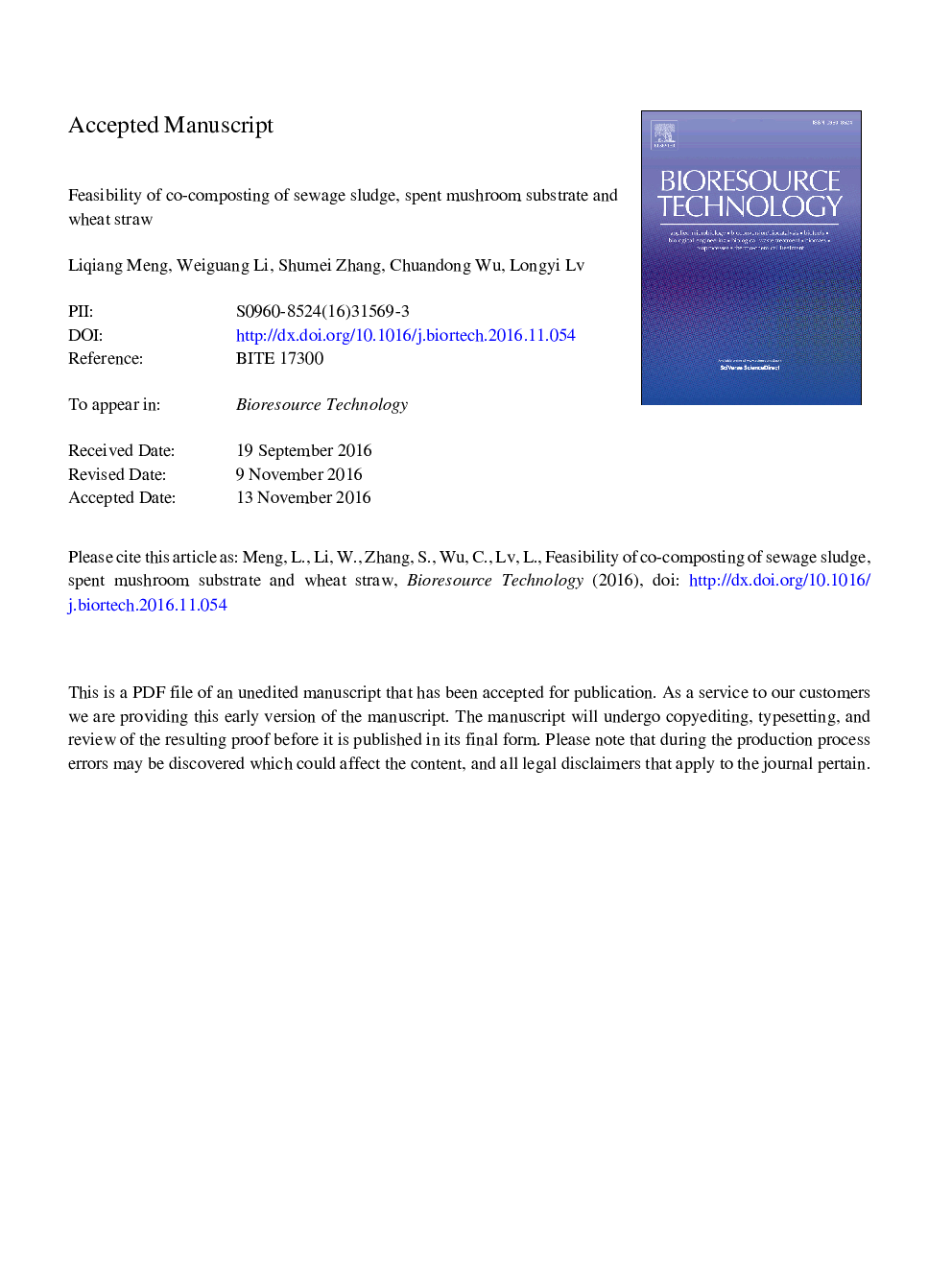| Article ID | Journal | Published Year | Pages | File Type |
|---|---|---|---|---|
| 4997647 | Bioresource Technology | 2017 | 38 Pages |
Abstract
In this study, the lab-scale co-composting of sewage sludge (SS) with mushroom substrate (SMS) and wheat straw (WS) conducted for 20Â days was evaluated. The addition of SMS evidently increased CO2 production and dehydrogenase activity. The combined addition of SMS and WS significantly improved the compost quality in terms of temperature, organic matter degradation and germination index, especially, reduced 21.9% of NH3 emission. That's because SMS and WS possessed the complementarity of free air space and contained plenty of degradable carbon source. The SMS could create a comfortable environment for the nitrifying bacteria and improve nitrification. The carbohydrates from combined addition of SMS and WS could be utilized by thermophilic microorganisms, stimulate ammonia assimilation and reduce NH3 emission. These results suggested that adding SMS and WS could not only improve the degradation of organic matter and the quality of compost product, but also stimulate ammonia assimilation and reduce ammonia emission.
Related Topics
Physical Sciences and Engineering
Chemical Engineering
Process Chemistry and Technology
Authors
Liqiang Meng, Weiguang Li, Shumei Zhang, Chuandong Wu, Longyi Lv,
